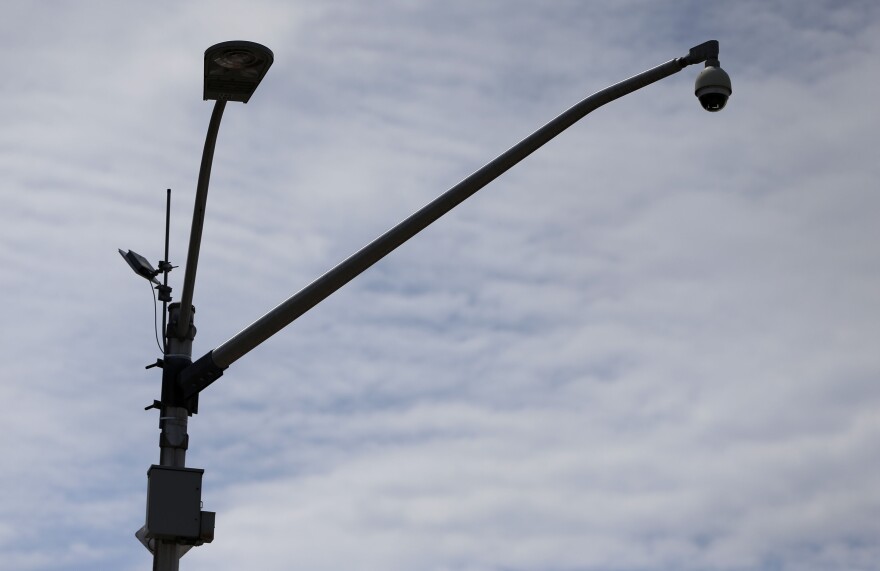The Peoria chapter of the American Civil Liberties Union wants the city to require more oversight and transparency related to a new camera system for the police department.
In a letter to the city council, the Peoria Area ACLU called for regulation of the Automated License Plate Readers being purchased from Flock Safety for use in high crime “hot spots.”
“The Illinois ACLU, of which our chapter is a part, opposes these readers,” said Elaine Hopkins, the chapter’s former president and a current board member. “They are invasive of personal privacy, and they tend to discriminate against minorities.”
In November, the city council unanimously approved spending $109,000 for the 16 solar-powered cameras and a two-year subscription to necessary software. The expense is partially covered by a Department of Justice assistance grant, with additional second-year funding covered by the city’s Police Camera Fund.
The ACLU wants the city to develop a specific privacy policy detailing who can access the system and how long information will be stored. The organization also wants to know how the police are deciding where to place the ALPR cameras.
“We believe the police should publicly share where this technology is being used and the decisions about how this deployment is made. How do they decide where this goes? This should not be a formula to monitor the everyday activities of black and brown communities,” said Hopkins. “It's like building an electronic moat around these neighborhoods and we don't want that.”
A statement from the Peoria Police Department on the ALPR system says the cameras will be installed at select locations determined by their deployment plan. PPD says the system operates around the clock, and will be able to alert police when vehicles on “hot lists” – such as stolen vehicles or those operated by violent offenders – are observed.
The ACLU also wants the city to require annual reports on how effective the system is, and to guarantee the PPD does not share the information collected with other law enforcement agencies that do not have similar privacy policies.
Hopkins said the ALPR cameras are a way for law enforcement agencies to circumvent probable cause in trying to detect criminal activity through advanced technology.
“It’s a camera, so they just click on any license tag they feel like it, then that person or car owner can be checked for anything,” said Hopkins. “So it's very, very much an invasion of personal privacy and that's why we're opposed to it.”
The PPD statement says the goal of the camera system is to improve closure rates for criminal investigations by developing leads and identifying suspects.
Hopkins said investing time and money in surveillance tools like the ALPR system undermines the relationship between the police and the neighborhoods they serve while detracting from community-based approaches to reducing crime.
“Why do we need these? I don't know,” said Hopkins. “We think investing in the communities and working with people there is a better solution to crime than something like this.”
The ALPR cameras have been controversial in other communities too. The Bloomington City Council recently voted to postpone a decision on whether that city will allow the cameras, after concerns were raised by the local ACLU.


